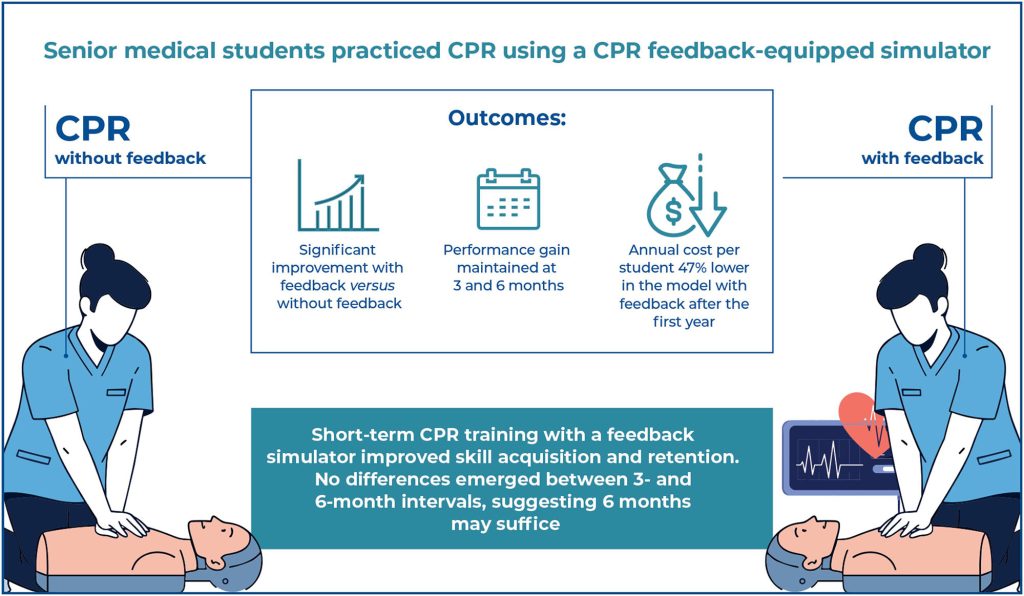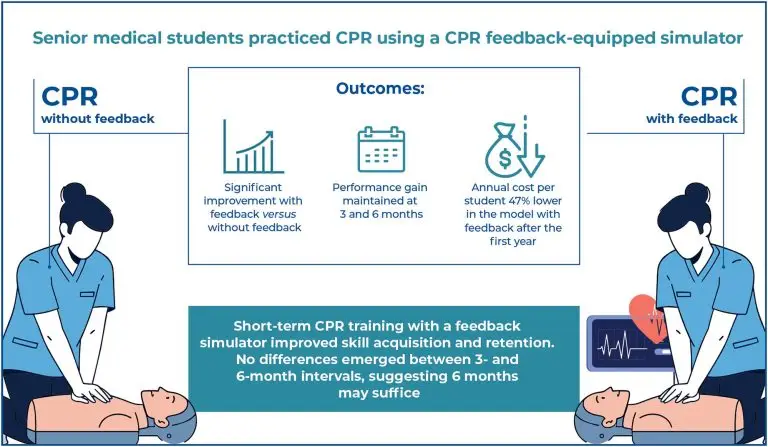einstein (São Paulo). 03/out/2025;23:eAO1257.
Analysis of acquisition and retention of cardiopulmonary resuscitation skills according to training frequency
DOI: 10.31744/einstein_journal/2025AO1257
Highlights
■ All variables that affect the quality of cardiopulmonary resuscitation were analyzed.
■ In addition to performance, we analyzed participants’ confidence.
■ This study considered the cost of training using the traditional methodology versus feedback.
ABSTRACT
Objective:
To analyze cardiopulmonary resuscitation skill acquisition and retention at 3 and 6-month intervals and determine the optimal training frequency and associated costs.
Methods:
Fifth and sixth-year medical students practiced cardiopulmonary resuscitation using a feedback-equipped simulator.
Results:
The study included 43 students. Training with a feedback-equipped device significantly improved the performance compared to baseline: overall performance (median=95% [87–98%] versus 60% [18–89%]; p<0.001), compression depth (median=71% [24–92%] versus 13% [0–94%]; p<0.001), and compression rate (median=89% [71–98%] versus 69% [23–96%]; p=0.002. No significant differences were observed in the total recoil (median=93% [78–99%] versus 93% [58–100%]; p=0.991) or hand position (median=99% [100–100%] versus 99% [100–100%]; p=0.754). Over time, the overall performance increased by 12% at 3 months (mean ratio [MR]=1.12; p=0.001) and 10.1% at 6 months (MR=1.101; p<0.001). The compression depth improved by 38.9% at 3 months (MR=1.389; p<0.001) and 24.7% at 6 months (MR=1.247; p=0.010), whereas the compression rate increased only at 6 months (MR=1.086; p=0.026). No significant differences were found between the groups trained every 3 months and those trained every 6 months (p>0.05).
Conclusion:
Short-term training with a cardiopulmonary resuscitation feedback-equipped simulator significantly improved cardiopulmonary resuscitation skill acquisition and retention. However, no differences were observed between the 3- and 6-month training intervals, suggesting that a 6-month interval may be sufficient for maintaining proficiency.
[…]
63



